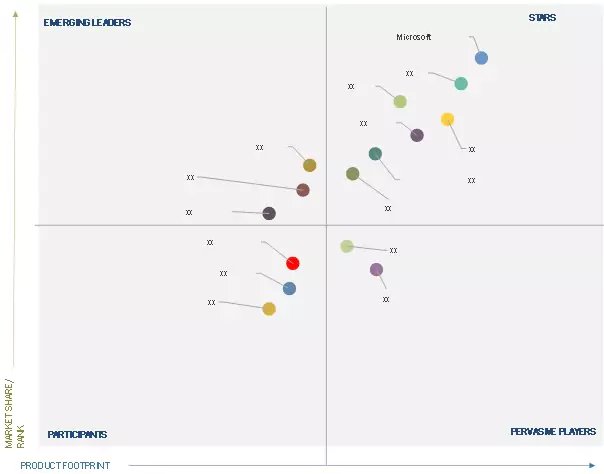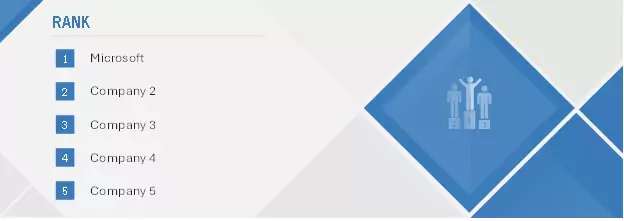Top Companies in Location-based Entertainment Industry - Microsoft (US),Google (US), Meta (US), NVIDIA (US) and Unity Technologies (US)
The global Location-Based Entertainment market size is projected to grow from USD 5.47 billion in 2024 to USD 15.33 billion by 2029 at a compound annual growth rate (CAGR) of 22.9%. The market is growing because of new immersive technology developments that include Virtual Reality (VR) and Augmented Reality (AR) which improve user engagement. Earlier, immersive experiences needed major physical infrastructure investments, which restricted their accessibility. High-quality entertainment is now accessible to a wide audience because LBE implements VR and AR solutions that deliver both affordable rates and scalable capabilities. For instance, the gaming company Sandbox VR continues its expansion through new openings at Park Meadows Mall in Colorado, US, where customers can experience full-body motion capture gaming. The acquisition of Springboard VR by Vertigo Games aims to boost the distribution of VR content for LBE venues. These innovations expand the market through better accessibility while generating more consumer interest.
Top Companies in Hyperscale Data Center Industry Include:
- Microsoft (US)
- Google (US)
- Meta (US)
- NVIDIA (US)
- Unity Technologies (US)
Various globally established players, such as Microsoft (US), Google (US), Meta (US), NVIDIA (US), Unity Technologies (US), Sony Interactive Experiences (US) are dominating the Location-Based Entertainment market. To increase their market share in the Location-Based Entertainment market, these competitors have used various growth methods, including partnerships, agreements, collaborations, new product releases, product enhancements, and acquisitions.
To know about the assumptions considered for the study download the pdf brochure
Microsoft
Microsoft was established in 1975 and maintains its headquarters in Redmond Washington while it delivers services across cloud computing and video games and digital services. The company maintains operations throughout 190 countries employing more than 210,000 staff members. Microsoft operates four business segments that include Productivity and Business Processes (Microsoft Office and Office 365 and Microsoft Teams) and Intelligent Cloud (Azure cloud platform) and More Personal Computing (Windows OS and Surface devices and Xbox) and Business Solutions (Dynamics 365 and LinkedIn). The company concentrates its operations on cloud and edge computing solutions. In the LBE domain, Microsoft’s Azure PlayFab delivers cloud-based developer tools that enable real-time multiplayer gaming alongside interactive gameplay features. For instance, Dreamscape Immersive implements Microsoft cloud solutions to deliver VR storytelling experiences in specific locations while Two Bit Circus utilizes Azure technology to provide interactive entertainment in its mini amusement parks.
Since 1998 Google operates from California under Alphabet Inc. as its parent company while offering internet services, cloud computing and digital platforms. The company operates through Android, Chrome alongside Gmail, Google Drive and Google Maps together with Google Play, Search and YouTube which all serve more than one billion users. Through Google Cloud, customers gain access to scalable infrastructure and artificial intelligence capabilities, while Google Workspace delivers collaborative solutions. Many LBE companies employ Google Earth and Street View to embed actual locations into their immersive experiences. Recently, Google joined forces with Niantic to develop Location-Based AR gaming through its ARCore Geospatial API which enables users to experience real-world interactions. The VOID previously utilized Google Cloud services for Location-Based virtual reality experiences while WildEarth uses Google Earth for wildlife exploration in virtual reality.
Meta
Meta (US) is actively exploring the Location-Based Entertainment (LBE) market through its advancements in virtual reality (VR) and augmented reality (AR) technology. With products like Meta Quest headsets and immersive experiences, the company collaborates with entertainment venues, theme parks, and arcade operators to integrate VR-based attractions. Meta's focus in this space aligns with its broader metaverse vision, enhancing social and interactive experiences beyond home use. While not a primary revenue stream, its involvement in LBE supports ecosystem growth, developer engagement, and broader adoption of its VR/AR technology.
NVIDIA
NVIDIA (US) plays a significant role in the Location-Based Entertainment (LBE) market by providing high-performance GPUs, AI solutions, and real-time rendering technologies that power immersive experiences. Its graphics processors and cloud-based solutions enable ultra-realistic visuals for VR arcades, theme parks, and interactive attractions. NVIDIA’s RTX technology enhances real-time ray tracing, while its Omniverse platform supports the development of large-scale, physics-based simulations for virtual environments. By collaborating with entertainment providers and developers, NVIDIA helps drive innovation in LBE, delivering cutting-edge visual fidelity and seamless interactive experiences.
Unity Technologies
Unity Technologies (US) is a key player in the Location-Based Entertainment (LBE) market, providing its powerful real-time 3D engine to develop immersive VR, AR, and interactive experiences. Widely used in theme parks, VR arcades, and interactive installations, Unity enables developers to create high-quality, scalable content for multi-user experiences. Its XR tools, AI-driven interactions, and cross-platform compatibility make it a preferred choice for LBE applications. Through partnerships with entertainment providers, Unity supports the creation of dynamic, engaging, and highly interactive attractions that enhance user engagement in physical entertainment spaces.
Evaluation Quadrant Matrix For Key Players
The company evaluation matrix assesses major Location-Based Entertainment providers based on product portfolio strength and business strategy excellence. Vendors are evaluated on criteria such as product range, innovation, branding, sales support, geographic presence, revenue, and R&D investment, providing a competitive leadership analysis.

Market Ranking Analysis For Key Players
The market ranking analysis was based on various factors including the companies' breadth and depth of offerings, service delivery, and deployment across application areas. Key aspects such as delivery support, market reach, channels, and long-term viability were also considered. In addition, the companies' strategic roadmaps and inorganic growth, such as mergers and acquisitions, were factored into the evaluation. The analysis leveraged secondary research, supplemented by in-depth primary interviews with industry leaders, to ensure a comprehensive understanding of the market.

Related Reports:
Location-based Entertainment Market by Systems (AR/VR, Projection Mapping, Interactive Gaming), Software (Content Management, Experience Design, Analytics & Monitoring), Application (Immersive Rides, Cinematic Experiences) - Global Forecast to 2029
Contact:
Mr. Rohan Salgarkar
MarketsandMarkets Inc.
1615 South Congress Ave.
Suite 103,
Delray Beach, FL 33445
USA : 1-888-600-6441
sales@marketsandmarkets.com
This FREE sample includes market data points, ranging from trend analyses to market estimates & forecasts. See for yourself.
SEND ME A FREE SAMPLE





